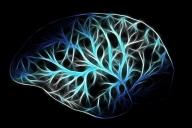As we get older, our memory can start to decline at different rates for different people.
They studied factors that could affect memory decline in both younger and older people.
The researchers found that the hippocampus, a part of the brain responsible for memory and navigation, might play a role in older adults having difficulty learning new places.
How it works
The way the hippocampus forms mental representations of locations could explain why some people struggle to remember where things are.
The study's lead author said that these findings could help predict the early stages of dementia when memory decline becomes a concern.

The study was inspired by previous research done on rats.
They found that older rats had a harder time adapting to new environments compared to younger rats.
Building on that research, Zheng and her team recruited younger and older adults to participate in a virtual reality experiment.
They had to memorize the layouts of virtual cities and answer questions about the locations while their brain activity was scanned.
The results showed that older adults had more difficulty distinguishing between different environments compared to younger adults.
Different neurons in the hippocampus have different functions, such as responding to shapes or colors.
If these neurons overlap in their functions, it can lead to inaccurate representation of the environment and lower-quality neural signals, affecting memory performance.
The study also revealed that the quality of neural signals coming from other parts of the brain into the hippocampus, like visual information, could influence memory.
Even high-performing older adults showed a decrease in the quality of these signals.
Why it's important
The research team aims to conduct further studies using immersive virtual reality, which would provide a more naturalistic experience and incorporate body-based cues for navigation.
By understanding how memory decline occurs, researchers hope to improve predictions and interventions for people with dementia.
Previously, we talked about the benefits of using complex sentences.









